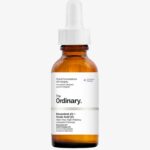Strangely, is “collagen” a component of one of the most-looked words on Google lately? Not only is it one of the most abundant healthy proteins in our body, but its (no doubt) loss has a clear effect. In fact, collagen accounts for 75% of the total dry weight of the skin, so you’ll definitely be better off thinking its lack is obvious. This can elucidate our cumulative fixation to keep our collagen degree high to feasible, especially since we are 1% of collagen over 25 years of age each year.
“The collagen present in our skin is the result of the balance between synthesis and deterioration,” clarified Mercedes Abarquero Cerezo, a pharmacist and head of the scientific research program at the L’Eréal School of Dermatology. “Gradually, the cells responsible for collagen synthesis actually reduce their tasks. Most importantly, lifestyles such as sunshine, dietary regimen, or anxiety, such as sunshine, dietary regimen, or anxiety disorders, increase their disadvantages, especially in women in menopause.”
Obviously, the loss occurs gradually and promptly – so you may not see it in the first place. “Our body is a balanced system,” Abarquero Cerezo clarified. “As for our skin, it’s a concern that collagen is derogatory and collagen is constantly producing. As we age, we start to see any kind of differentiation or standardized approaches that are adjusted.”
5 indicators of collagen loss on your skin
Statistically, these adjustments usually start at the age of 25, but Cerezo Abarquero Cerezo always remembers that we can also start getting rid of collagen by lifestyle or routine. This loss could lead to “the internal frame, which later creates obvious creases, which can cause obvious losses,” Abarquero Cerezo claimed.
In one of the most obvious indicators, has this loss begun?
That’s not to say these are the only indicators. Various other indicators of collagen loss include thinner skin, more hollow positions around the eyes, adjustments to the form of the face, such as a slim sacred place, more noticeable fat, fragile nails and hair, and joint discomfort and weakness in muscle mass. Collagen does affect all the little things.
Collagen and menopause
Similarly, as hormone medications adjust to affect the body and mental state, they can also affect the skin. Specifically, loss of estrogen is shown to affect collagen throughout menopause. In fact, “study shows that collagen has actually decreased by about 30% in the first 5 years of menopause,” Abarquero Cerezo keeps it in mind. “In the next 15 years, collagen reductions far exceeded older ages, with collagen reductions of 2% per year.”














